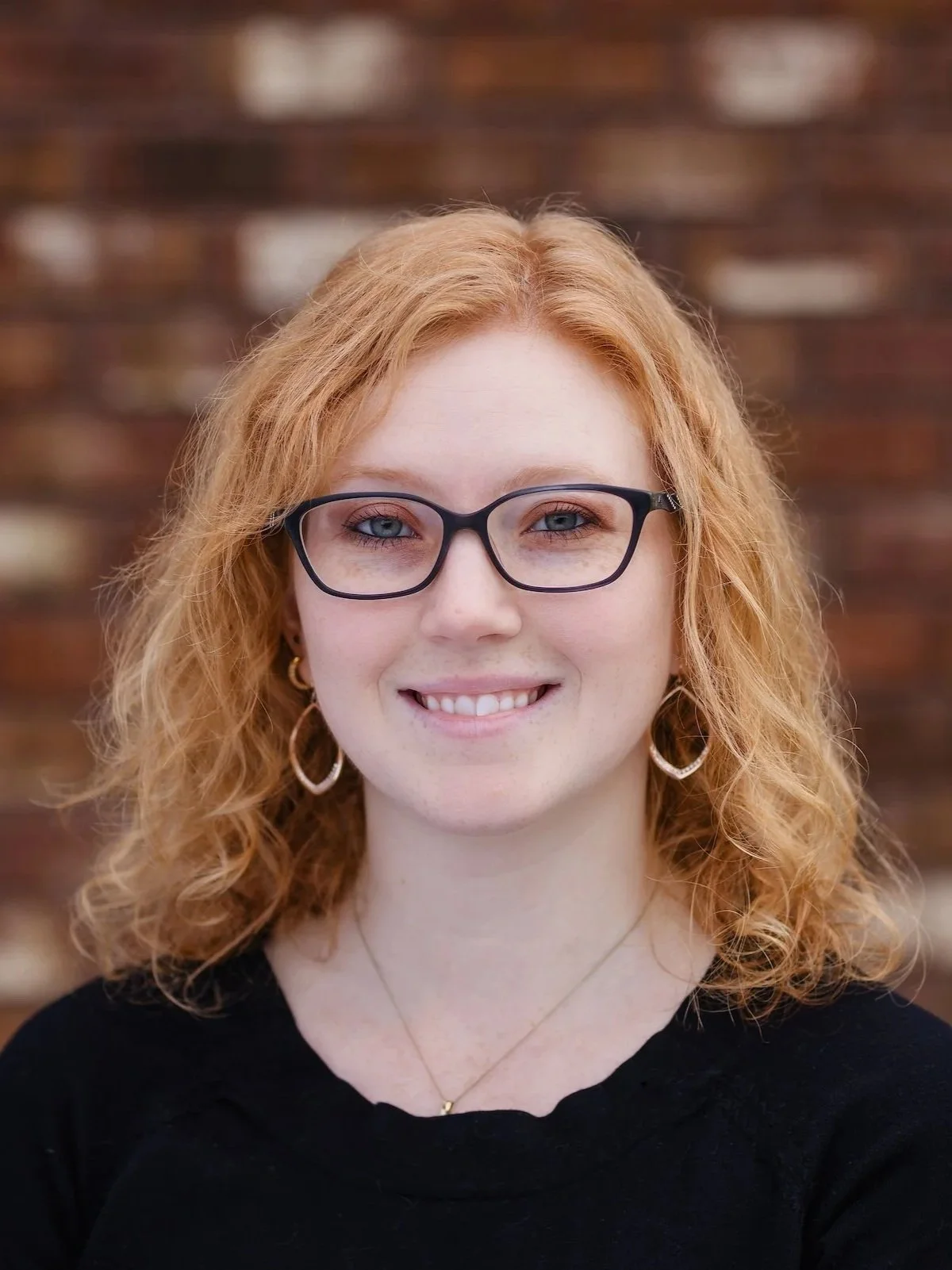
The Good Enough Parent: Why Perfection Isn’t My Goal
If you’ve ever stayed awake at night replaying the moment you lost your patience with your child or worried that not doing enough will somehow “ruin” them, please know that you’re not alone. As a therapist and a parent myself, I feel this pressure often. We live in a culture that bombards us with images of the “perfect” parent. I see influencers who are endlessly patient, creative, calm, and available and can't help but compare myself to their “perfection.” But here’s the truth: your child doesn’t need a perfect parent. They just need a good enough one.
If you’ve ever stayed awake at night replaying the moment you lost your patience with your child or worried that not doing enough will somehow “ruin” them, please know that you’re not alone. As a therapist and a parent myself, I feel this pressure often. We live in a culture that bombards us with images of the “perfect” parent. I see influencers who are endlessly patient, creative, calm, and available and can't help but compare myself to their “perfection.” But here’s the truth: your child doesn’t need a perfect parent. They just need a good enough one.
This phrase “the good enough parent” was introduced by British pediatrician and psychoanalyst Donald Winnicott back in the mid-20th century. He noticed that children don’t thrive because their parents never make mistakes. They thrive because, in the everyday rhythm of caregiving, parents provide enough love, enough safety, and enough presence for a child to grow in their own unique way.
Over the last few decades, science has continued to support Winnicott’s ideas. In the 1970s, researcher Mary Ainsworth created the now-famous “Strange Situation” study, which showed that children form secure attachments not because their parents are perfect, but because their parents are sensitive and responsive much of the time. Later, Ed Tronick’s “Still Face” experiment revealed that even when parents miss a baby’s signals, what really matters is coming back into connection. Through study and experience, we’ve learned that repair, not perfection, helps children thrive as they learn and grow.
Other researchers have pointed out that striving for perfection can actually make things harder. Parenting expert Jay Belsky, for example, showed that stress and pressure often get in the way of healthy parent–child connections. Modern writers like Daniel Siegel and Tina Payne Bryson (authors of The Power of Showing Up) reassure us that showing up consistently, even imperfectly, positively impacts a child’s brain development and sense of security.
I think about this in my own parenting often. There have been plenty of times when I’ve lost my patience over homework battles, the mad scramble to get out the door in the morning, or bedtime protests. In the heat of the moment, I often mess up or do things “imperfectly.” But what I’ve learned is that the repair matters more than the slip. I'm learning to circle back, whether it’s with a hug, an apology, or just taking a calmer moment together. My kids certainly won’t remember me as perfect, but they’ll remember that I cared enough to come back.
We are all learning as we go, similar to how humans learn to walk: We stumble, we fall, we get back up and move forward. In the same way, our children are learning about relationships through us. Our missteps and stumbles are not proof of failure, they’re part of the process. Winnicott believed that these imperfect, “good enough” moments are what help kids build resilience and strength. And I believe it too, because I’ve seen it, not just in the research or in the families I work with, but because I’m living it every day.
If you’ve been carrying the heavy burden of guilt that you’re not doing enough or “ruining” your kids, I encourage you to pause, breathe, and remind yourself: Your child doesn’t need a flawless parent. They need you: human, imperfect, loving, and learning right alongside them. Good enough is more than enough.
Resources:
If this idea resonates with you, here are a few resources you might enjoy:
Donald Winnicott’s The Child, the Family, and the Outside World – where he first introduced the “good enough parent.”
The Power of Showing Up by Daniel Siegel & Tina Payne Bryson – a modern, practical guide rooted in attachment science.
Ed Tronick’s Still Face Experiment (a short video online) – a striking demonstration of how repair matters more than perfection.
Hold On to Your Kids by Gabor Maté – a validating read about the importance of connection.
Kristin Neff’s book Self-Compassion (or her TED talk) – a helpful antidote to perfectionism.
Source: https://thesupportspace.wordpress.com/category/parenthood/
Finding Safety & Growth with Kaylee Yates, MA, LMFT
Meet Kaylee Yates—a therapist whose empathy meets expertise, offering a healing space where both struggle and joy are honored. As Kaylee warmly puts it, “if you are going to do surgery in therapy, make sure to dip the scalpel in the anesthetic of love.” That grounding philosophy—creating a sanctuary of safety before confronting pain—is woven through everything she does.
Meet Kaylee Yates—a therapist whose empathy meets expertise, offering a healing space where both struggle and joy are honored. As Kaylee warmly puts it, “if you are going to do surgery in therapy, make sure to dip the scalpel in the anesthetic of love.” That grounding philosophy—creating a sanctuary of safety before confronting pain—is woven through everything she does.
A Person-Centered
Foundation
At the core of Kaylee’s work is person-centered therapy: a space where your unique story matters, and healing is guided together, not prescribed. She believes that everyone carries their own journey—she listens, learns, and walks alongside.
Expertise in Depression & Anxiety
Kaylee supports individuals, couples, and families in navigating depression and anxiety, helping clients rediscover clarity and resilience. Whether you're sitting across from her in person (hopefully with a cup of coffee in hand!) or joining via telehealth (where her cats might make surprise appearances), the connection is always warm and steady.
Healing Attachment and Relationship Wounds
While not always named outright, Kaylee’s specialties—couples, premarital, family, and young adults—hint at her deep understanding of attachment dynamics and relationship healing. Whether it's strengthening bonds or unpacking betrayal or insecurity, her relational focus supports restoring trust and connection.
Walking Through Trauma & Betrayal
Kaylee offers a compassionate presence for those grappling with trauma, grief, or betrayal. Though she doesn't emphasize specific trauma modalities, her overall approach—grounded in safety, narrative, and empathy—lends itself powerfully to processing deep wounds and restoring belonging.
Untangling People-Pleasing & Self-Destructive Patterns
Many who enter therapy find themselves trapped in self-sabotaging or people-pleasing habits. Kaylee meets where you are—honoring the pain behind the pattern, inviting curiosity without judgment, and helping you claim boundaries, assert needs, and nurture self-compassion.
Why Kaylee’s Approach Truly Matters
Safety First: A space where vulnerability is held, not judged
Your Story Centered: Therapy tailored to your history, not a one-size-fits-all script
Holistic Support: Whether through grief, trauma, relationships, or stress—a person-centered view always applies
Warm & Accessible: In-person (with coffee!), telehealth (with cat cameos!)—human connection is never compromised
Deep Relational Insight: Skilled at navigating attachment challenges, betrayal, and restoration of trust
In Her Own Words
Kaylee’s commitment shines through when she says:
“Therapy is not always easy… I may not be able to promise that the road to healing is easy, but I can promise to walk through this valley with you.”
That promise—of presence, partnership, and compassion—is at the heart of what makes her approach so profoundly supportive.
Ready to Begin?
If you're seeking healing from anxiety, depression, trauma, attachment wounds, betrayal, or the burdens of pleasing others—Kaylee Yates offers a therapy space where your story is seen, your heart is held, and your growth is guided—with love.
Interested in booking a session or exploring whether she’s the right fit? Reach out via our contact form to learn more about availability, telehealth or in-person options, and how to take the first step forward.




